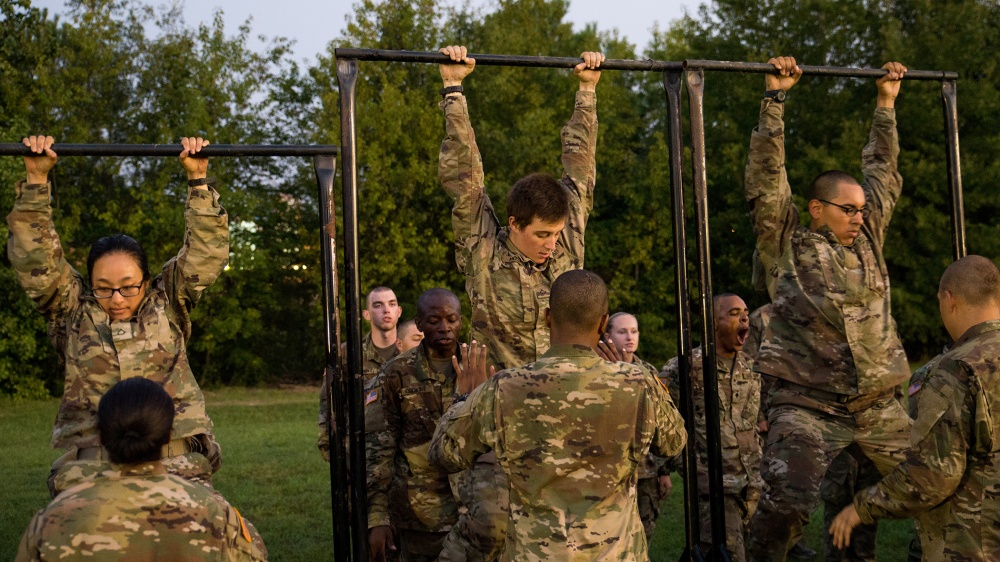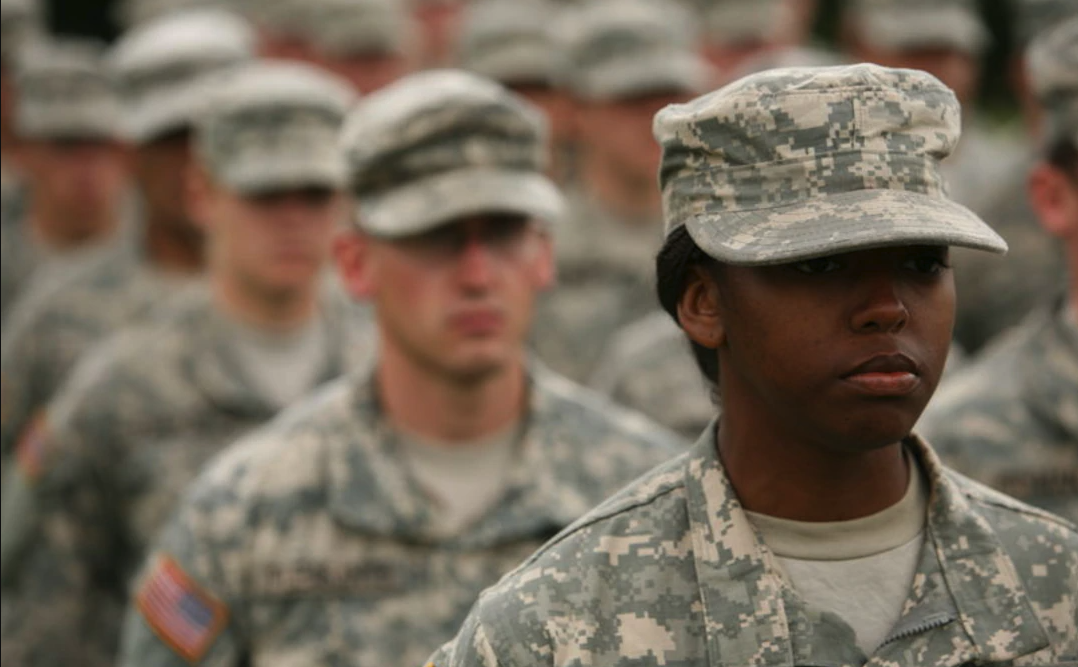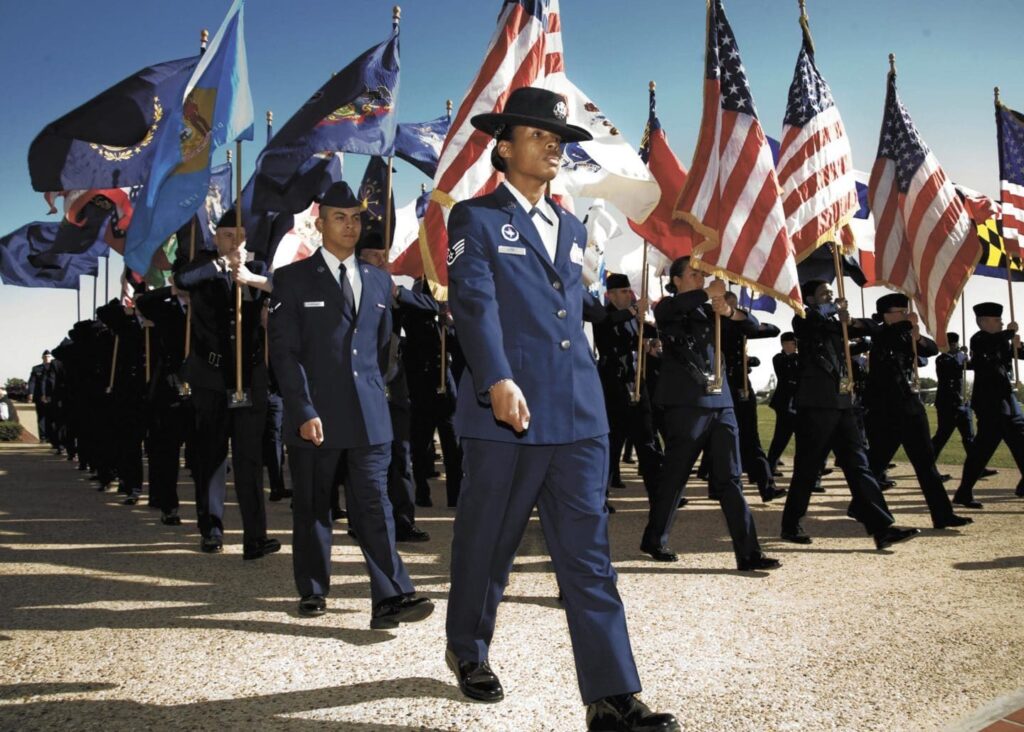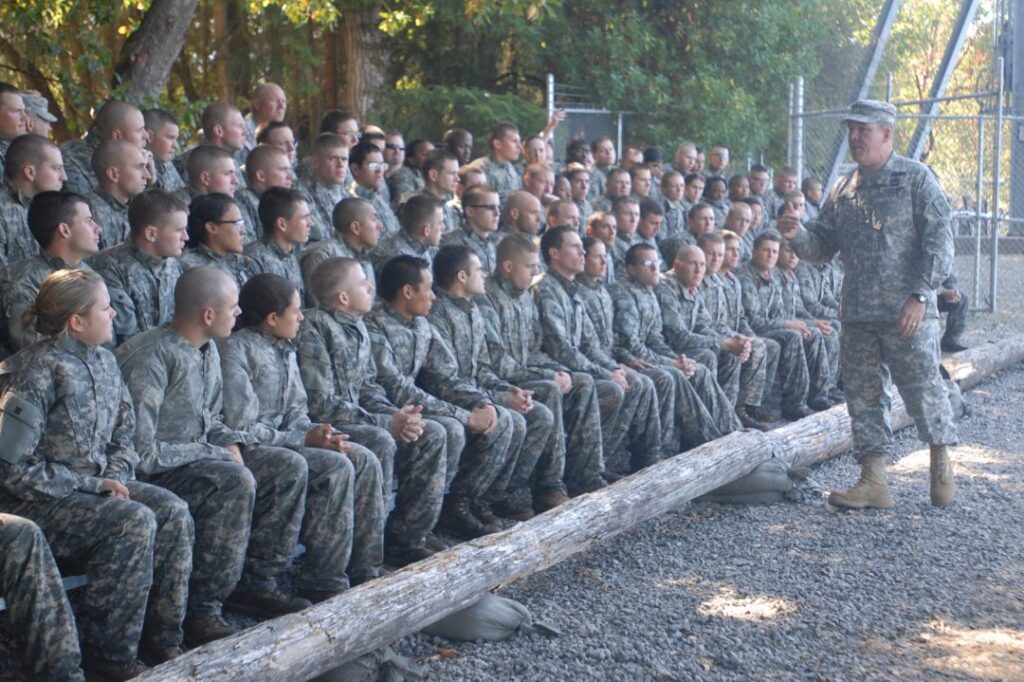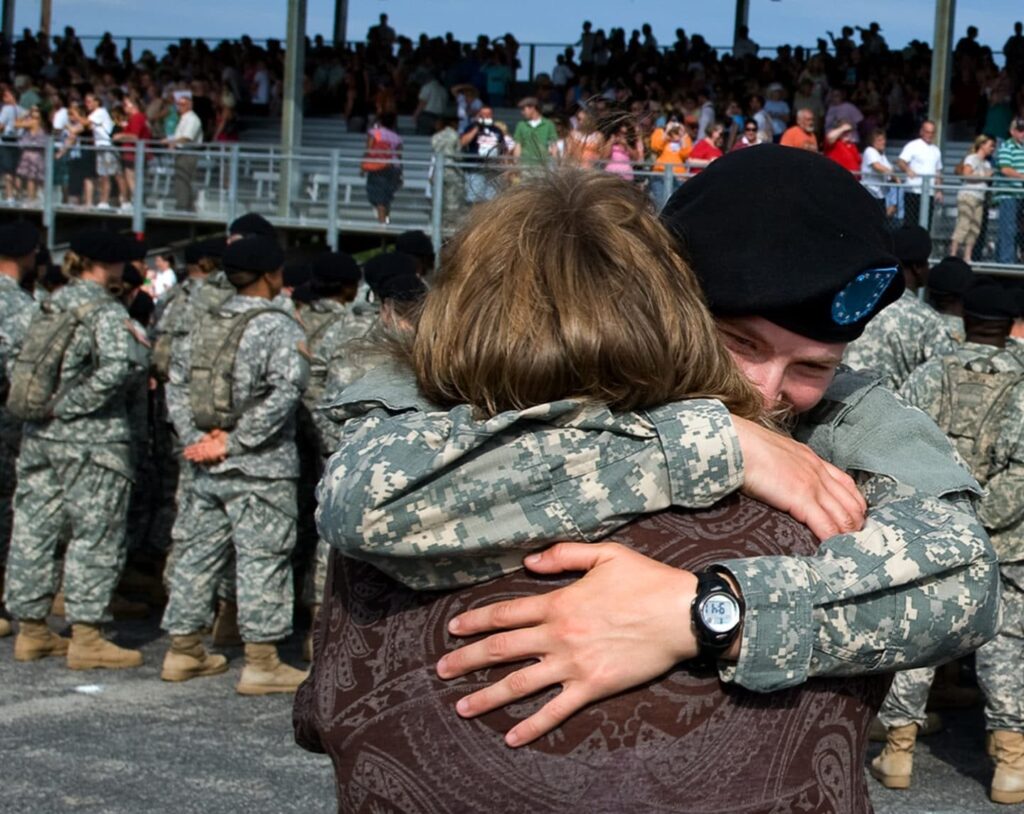If your child recently decided to join the Army, you may be wondering about their new career as a soldier. It can be an emotional journey from the moment your soldier leaves for Basic Combat Training (BCT).
No matter what your soldier’s job is or where they go, always remember what they are fighting for as you both embark on this journey.
Basic Combat Training (BCT)
You may have heard of reception. It’s where basic training starts after your son or daughter arrives on base. As they go from civilian to United States Soldier, they’ll be in a stressful, high-pressure situation right away.
Processing includes administrative tasks over a few days. After processing, your child will get assigned to their unit.
They continue on through several phases of training. Your soldier will learn Army Core values, physical readiness, marksmanship fundamentals, combat skills, live fire exercises, and much more!
During BCT, you’ll receive at least one phone call from your child to let you know they have arrived! It’s not a social call and will be very quick.
After that, letter writing is your best means of communication.
Having realistic expectations during BCT is a must! Your soldier will be kept extremely busy as they go through intense, focused training.
At the end of those 9 weeks in BCT, you can see your soldier again if you attend their graduation and feel the joy and pride of their accomplishments!
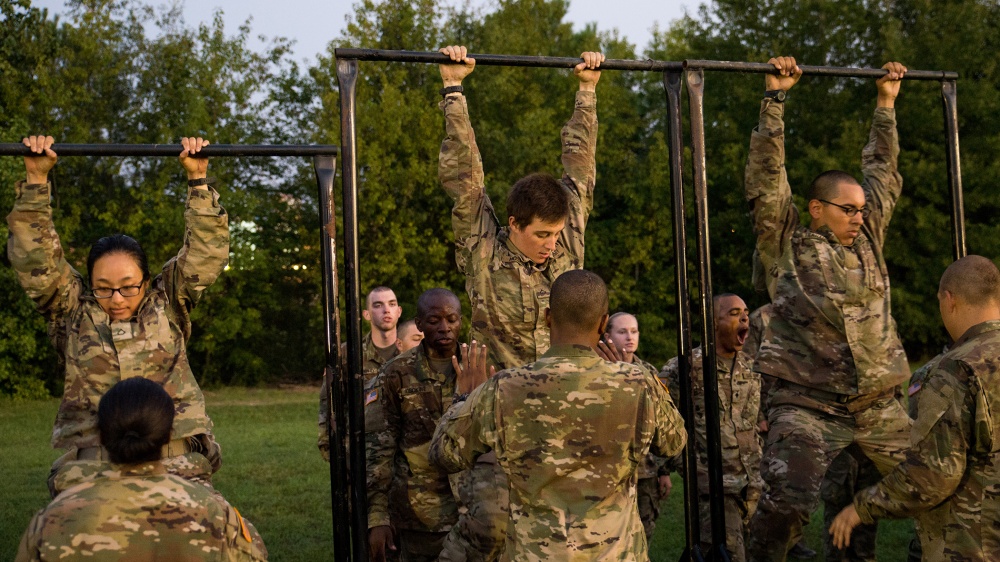
Advanced Individual Training (AIT)
Upon completion of BCT, your soldier will be ready for the next step in their military career, AIT. They’ll learn the skills to do their actual job in the Army, becoming an expert in their chosen field through hands-on training and instruction.
AIT is determined based on your child’s chosen Army career path. Prior to joining the Army, your child should have met with an advisor at Military Entrance Processing Stations (MEPS). This is where they find the best suited military career by going through a series of tests and examinations.
There are many AIT locations around the country. Your soldier will go to the one that focuses on their Military Occupation Code (MOS).
AIT can last anywhere between 4 and 52 weeks. It depends on their career choice.
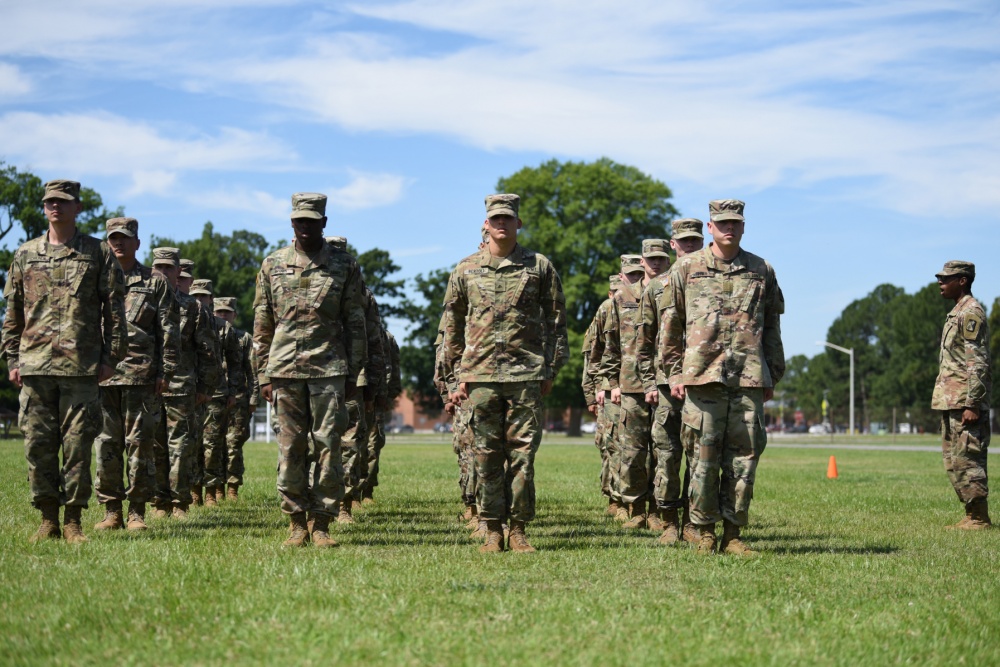
While in AIT, you’ll have more communication access with your soldier. They can also get weekend passes, which are approved by their unit. Weekend passes are not guaranteed and usually have to be earned. During AIT, your soldier can earn more privileges like an overnight
While in AIT, I was excited to fly to Fort Eustis to spend the weekend with my soldier at beautiful Virginia Beach!
You’ll have more communication access to your soldier during this time. But remember, they’ll still be very busy and focused on learning their job. I love that our military is the best trained in the world!
After AIT, your soldier will usually get 10 days leave before moving on to their next unit. This is always a wonderful opportunity for your soldier to fly home for a visit with family and friends.
Permanent Duty Assignment (PDA)
Now that your soldier has completed BCT and AIT, they’ll be assigned to their PDA or First Duty Station (FDS). Their PDA is based on the needs of the military and your soldier’s preferences.
Their PDA may be anywhere in the world! Your soldier may be stationed within the United States or overseas.
When my soldier graduated from AIT, his first duty station was Germany, for 2 years. I was so excited as he embarked on his adventure.
I made plans right away to visit Germany after he had a chance to get settled. We had a grand time touring around.
Your soldier will have a job and live in base housing. They will have more free time as they settle into their new routine.
While no two Army installations are exactly the same, life is similar to a civilian community. There’s a commissary (grocery store), post exchange (PX – department store or strip mall), recreational activities, and other amenities.
While my soldier was stationed in South Korea, it was like living in a large community. There were restaurants, a bowling alley, fitness centers, elementary and high schools, and much more.
You can expect your soldier to PCS (Permanent Change of Station) every 2 to 3 years during their career.
If you’re able to visit your soldier at their PDS, I highly recommend it! You’ll have a chance to visit with your soldier and learn more about life on a military installation.
Army Deployment
Soldiers typically deploy for 6 to 12 months depending on the needs of the military. Deployment frequency depends on your soldier’s job and military needs.
Deployment can often be a scary thing for families. Understanding deployment can help ease your mind. Deployment means the movement of military personnel from their home military base to another destination. After deployment, they return to their home military base.
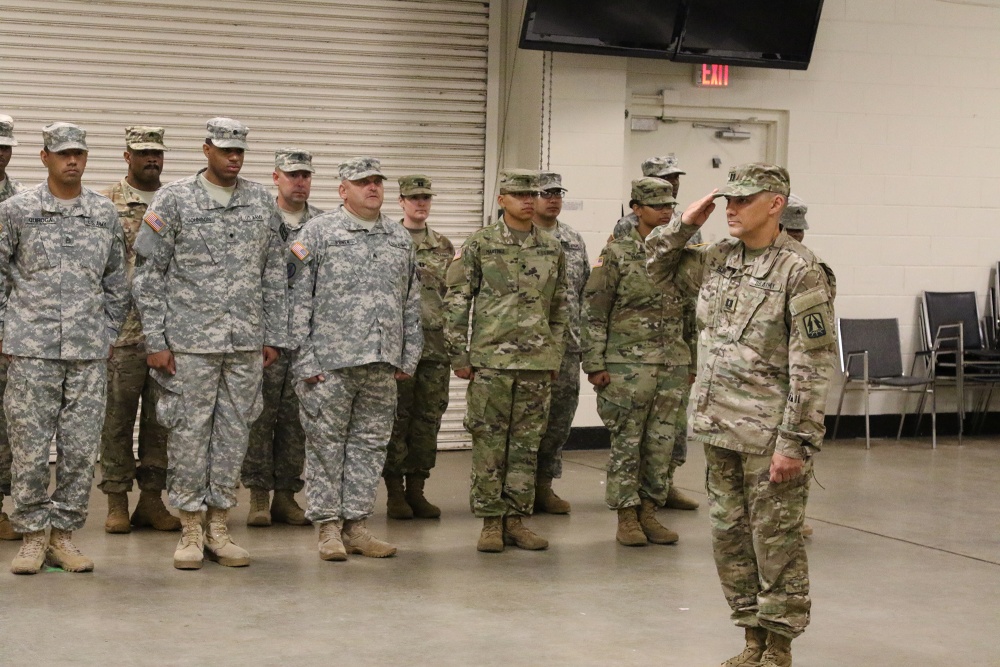
Deployments focus on specific types of missions. Here’s the top three:
- Army units get deployed to war zones, like Afghanistan or Iraq.
- Other times, service members are deployed to non-combat regions like South Korea, Germany or Japan where there is NO war.
- Yet other deployments send army service members to areas for humanitarian missions, especially to help the region after a disaster.
You can see that these deployments are very different from each other.
While your soldier is deployed, they may or may not have access to communications. You may not hear from them as often as you like. They’ll be very busy and have little time off.
Be patient and adjust your expectations.
Get an address as soon as you can to start sending letters and packages! Your soldier will appreciate it.
Expectations When Your Child Joins the Army
When your child joins the Army, they embark on the opportunity of a lifetime. They become part of the best trained military in the world!
While you may not have the same communication frequency and may not see your soldier as often as you like, remember that your soldier is part of something bigger than themselves. They are helping our great nation to continue in freedom and for people to live their American Dream.
How great is that?
